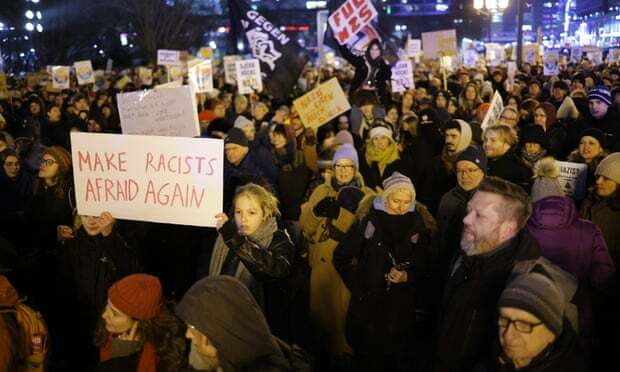From fear of migration to the rising cost of living, new political dividing lines will decide June’s European elections
Will the far right be the big winner in this year’s European elections? If so, what would its victory mean for the future of the EU? And who is the far right? Five years ago, Europe’s leaders rightly recognised that Europeans were suffering a vertigo moment. In Milan Kundera’s words, vertigo is not the same as a fear of falling – rather, it is the desire to fall, against which, terrified, we defend ourselves. Then, voters toyed with far-right populists and contemplated collapsing the union, but eventually the majority chose to vote for mainstream parties.
It is true that Europe is in a crisis mood. But migration is just one of five crises that have shattered the continent in the past 15 years. It came on the heels of a global financial crisis that led Europeans to doubt their children would enjoy living standards better than their own, and alongside a climate crisis that forced them to imagine a world in peril. Meanwhile, Covid-19 exposed the vulnerability of our health systems and triggered fears of new digital authoritarianism. Finally, the war in Ukraine buried the illusion that a major war would never return to the European continent. These five crises have several things in common: they were felt across Europe; they were experienced as an existential threat by many Europeans; they dramatically affected government policies; and they are by no means over. But these five crises are not the same – they triggered different fears and sensibilities and they have simultaneously torn Europe apart but – paradoxically – also kept the EU together.
A new study we conducted helps us imagine Europe populated by five different “tribes” whose political identities have been formed as a response to those crises. These tribes create divisions between and within Europe’s member states.
You can read the full article in The Guardian
Photograph: Sean Gallup/Getty Images
Ivan Krastev and Mark Leonard are co-authors of A crisis of one’s own: the politics of trauma in Europe’s election year
It is true that Europe is in a crisis mood. But migration is just one of five crises that have shattered the continent in the past 15 years. It came on the heels of a global financial crisis that led Europeans to doubt their children would enjoy living standards better than their own, and alongside a climate crisis that forced them to imagine a world in peril. Meanwhile, Covid-19 exposed the vulnerability of our health systems and triggered fears of new digital authoritarianism. Finally, the war in Ukraine buried the illusion that a major war would never return to the European continent. These five crises have several things in common: they were felt across Europe; they were experienced as an existential threat by many Europeans; they dramatically affected government policies; and they are by no means over. But these five crises are not the same – they triggered different fears and sensibilities and they have simultaneously torn Europe apart but – paradoxically – also kept the EU together.
A new study we conducted helps us imagine Europe populated by five different “tribes” whose political identities have been formed as a response to those crises. These tribes create divisions between and within Europe’s member states.
You can read the full article in The Guardian
Photograph: Sean Gallup/Getty Images
Ivan Krastev and Mark Leonard are co-authors of A crisis of one’s own: the politics of trauma in Europe’s election year
